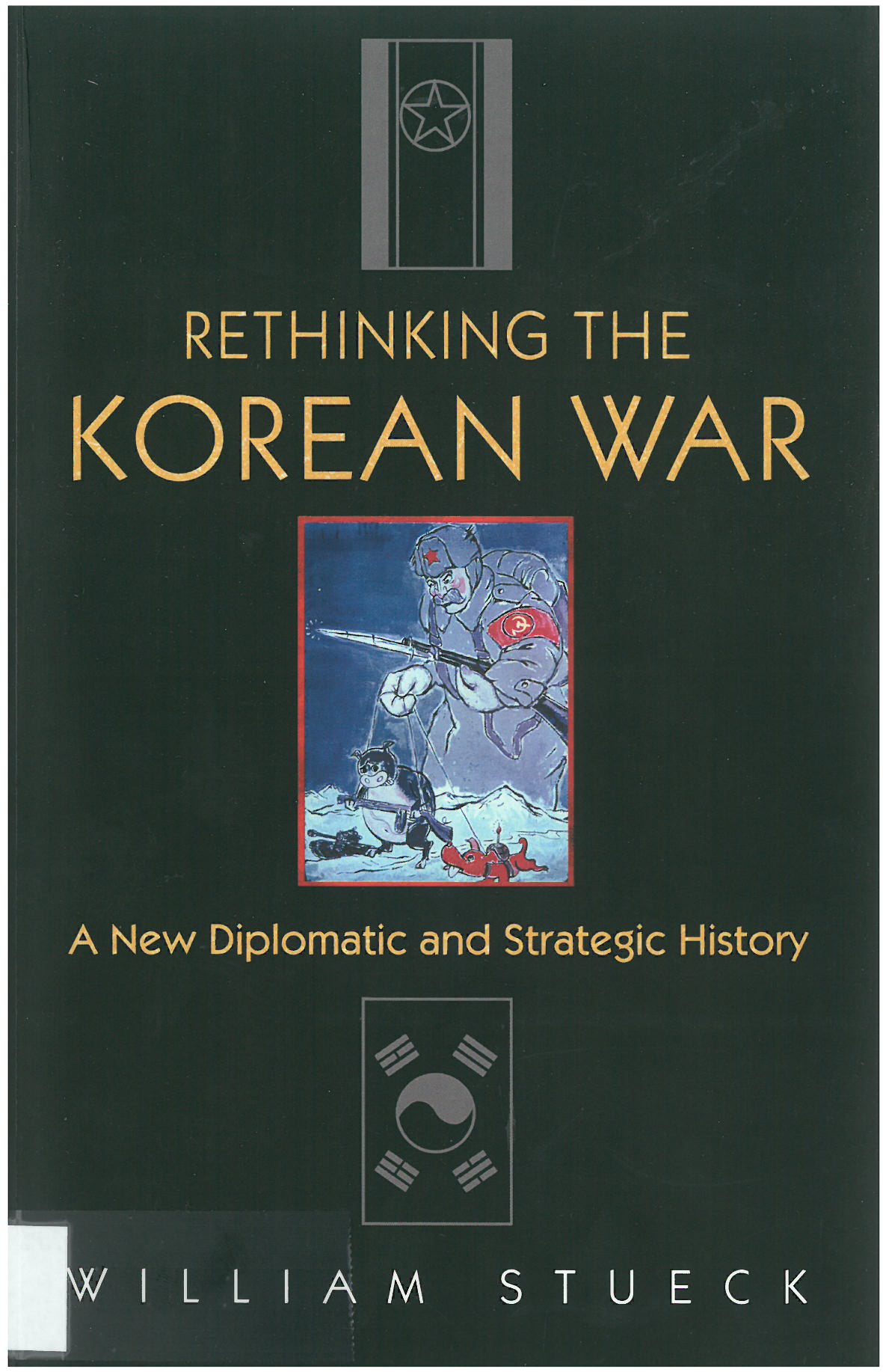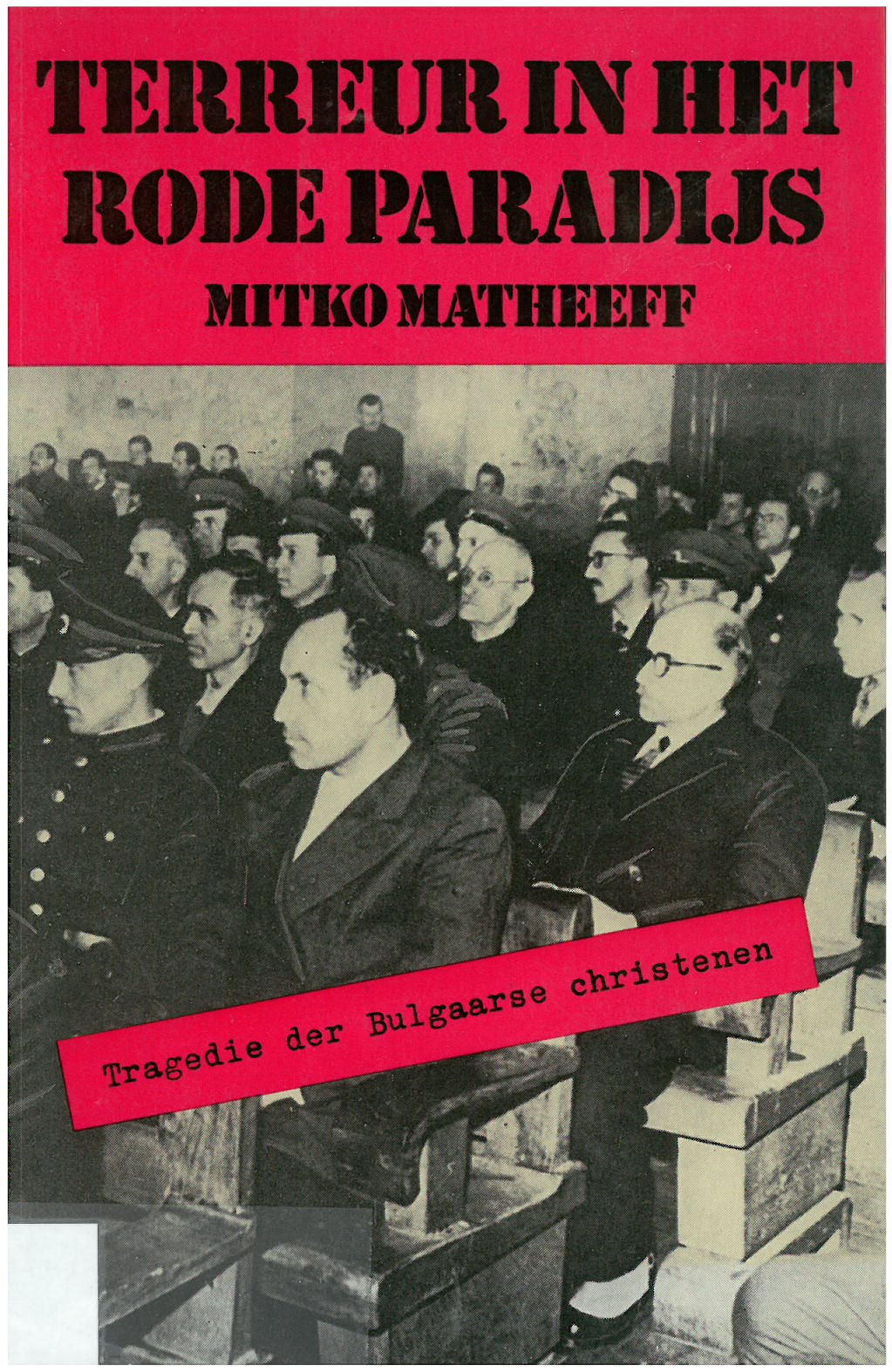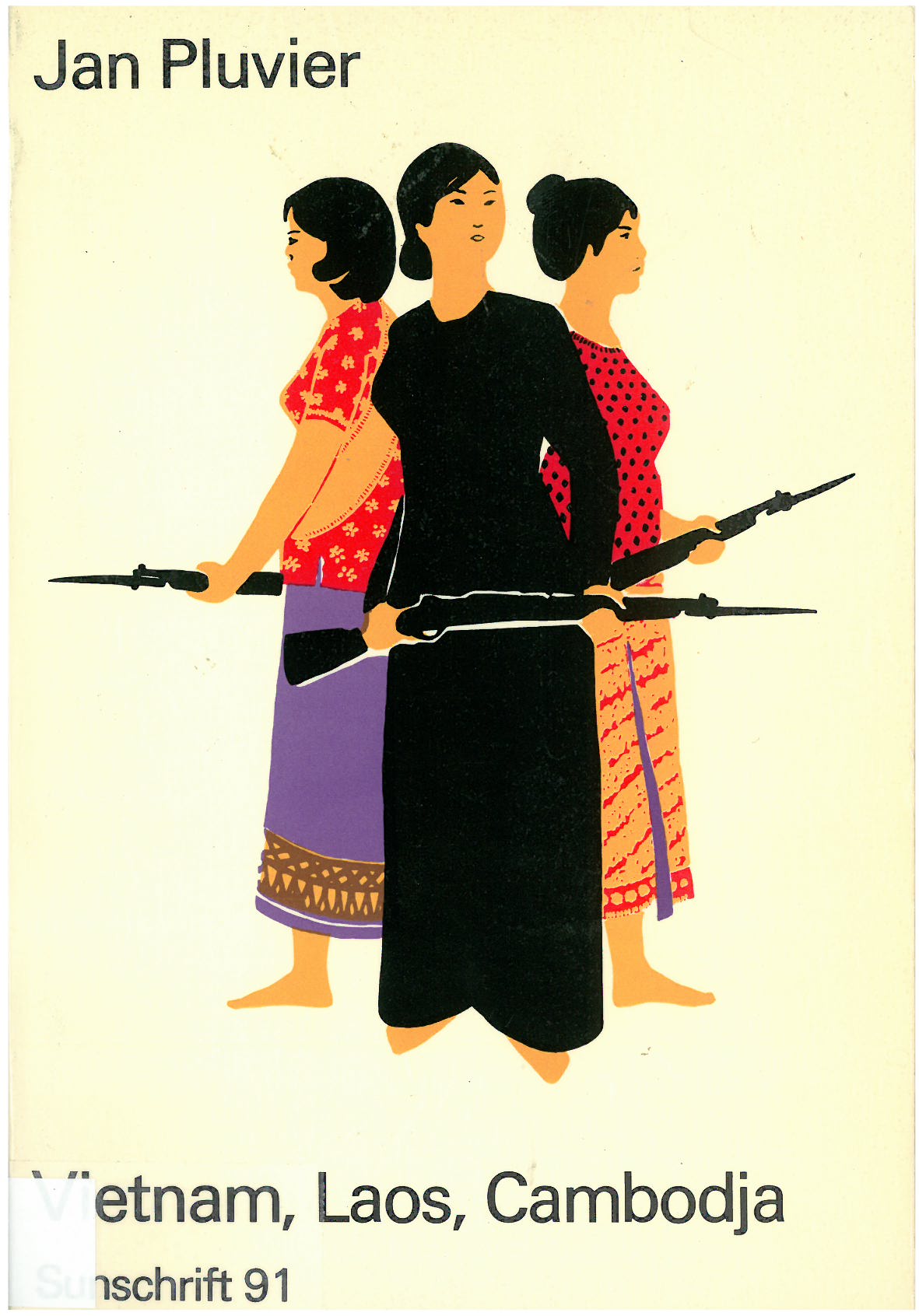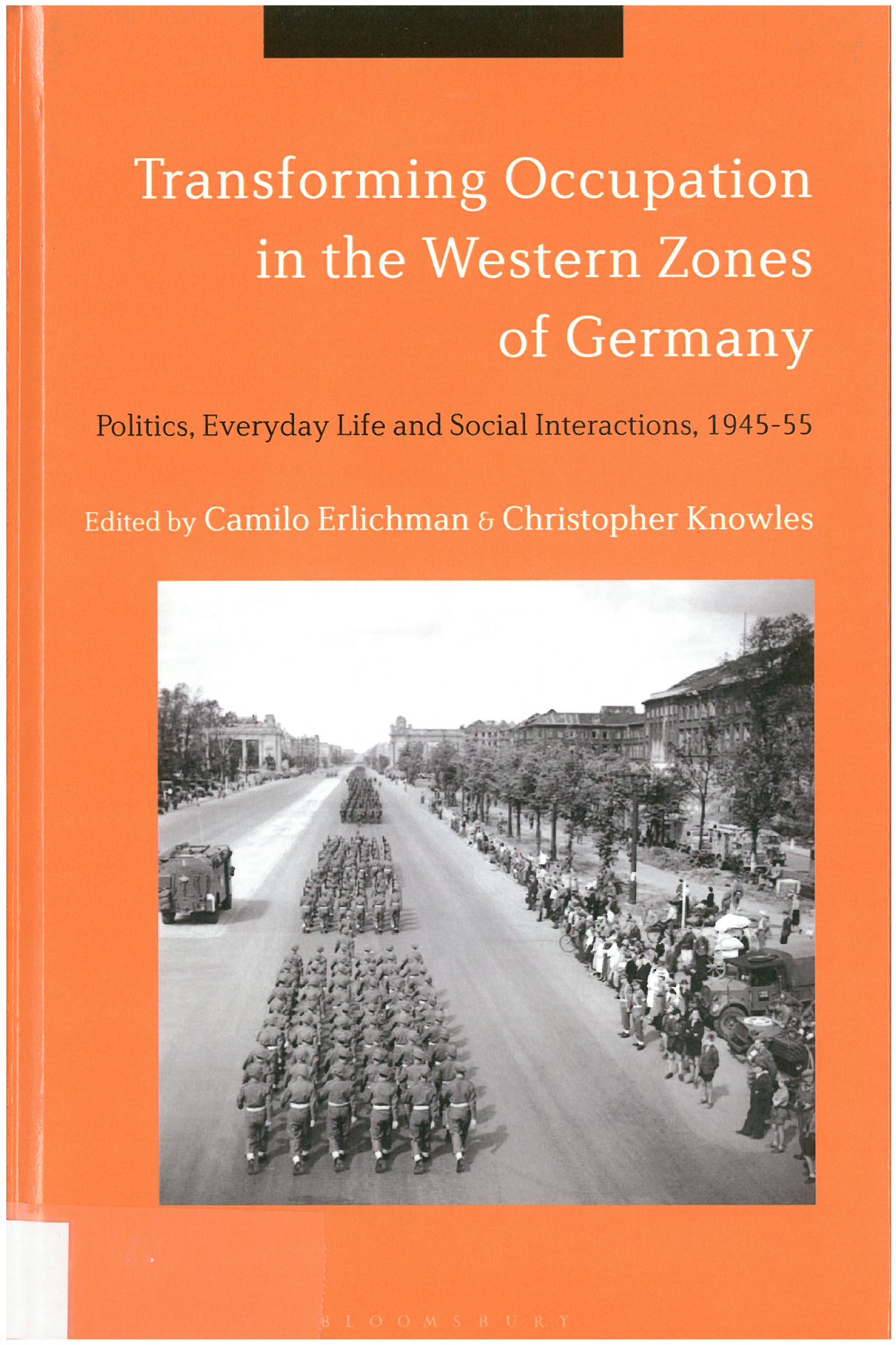
Latest news from the “Cold War”… (Library - October 2022)
 As previously mentioned in this column, CegeSoma has integrated a number of works into its collections that are related to various aspects of the Cold War as its Mission Statement was officially extended (in 1996) and now covers the “short 20th century” (roughly from 1914 to 1991). Much has changed since then and, while this mission was confirmed when CegeSoma was integrated into the State Archives in 2016, recent budget cuts have led us, after consultation with colleagues, to focus our attention on more specific research fields. Starting from this year, we will focus on acquisitions related to decolonisation in a Belgian framework, but without excluding studies that are deemed particularly remarkable related to our European neighbours (the Netherlands, France etc.). Furthermore, our attention will home in on Belgium’s relations with the European Union and its preceding institutions (Benelux, ECSC, EEC, EC etc.), as well as various pressure groups and “influencers” that marked the Cold War period, be they pacifist movements; youth movements; associations of former resistance fighters working for peace and “détente”; agencies that were openly anti-communist or which harboured refugees fleeing the “Eastern Bloc” etc.
As previously mentioned in this column, CegeSoma has integrated a number of works into its collections that are related to various aspects of the Cold War as its Mission Statement was officially extended (in 1996) and now covers the “short 20th century” (roughly from 1914 to 1991). Much has changed since then and, while this mission was confirmed when CegeSoma was integrated into the State Archives in 2016, recent budget cuts have led us, after consultation with colleagues, to focus our attention on more specific research fields. Starting from this year, we will focus on acquisitions related to decolonisation in a Belgian framework, but without excluding studies that are deemed particularly remarkable related to our European neighbours (the Netherlands, France etc.). Furthermore, our attention will home in on Belgium’s relations with the European Union and its preceding institutions (Benelux, ECSC, EEC, EC etc.), as well as various pressure groups and “influencers” that marked the Cold War period, be they pacifist movements; youth movements; associations of former resistance fighters working for peace and “détente”; agencies that were openly anti-communist or which harboured refugees fleeing the “Eastern Bloc” etc.
 However, before applying this selective approach and notwithstanding the current budgetary… frugality, the CegeSoma was able, as one may remember, to enrich its collections with an important set of works from the Library of Sint-Niklaas that largely focus on this subject even though they overlap chronologically with the period analysed (most of them were produced between 1970 and 1990). Moreover, CegeSoma has continued to acquire a number of titles that may be of interest for seasoned research professionals and the wider public alike.
However, before applying this selective approach and notwithstanding the current budgetary… frugality, the CegeSoma was able, as one may remember, to enrich its collections with an important set of works from the Library of Sint-Niklaas that largely focus on this subject even though they overlap chronologically with the period analysed (most of them were produced between 1970 and 1990). Moreover, CegeSoma has continued to acquire a number of titles that may be of interest for seasoned research professionals and the wider public alike.
 Of these recent acquisitions, we would like to draw attention to the excellent dictionary La Guerre d’Indochine (edited by Ivan CADEAU, François COCHET and Remy PORTE), which was published in Paris in 2021 as a result of collaboration between the Librairie Académique Perrin and the Musée des Armées. There is also the very well-documented Cold War Mary: Ideologies, Politics, and Marian Devotional Culture edited by Peter Jan MAGRY and published in Leuven by Leuven University Press in 2020. Also worth mentioning is the more classic work Transforming Occupation in the Western Zones of Germany: Politics, Everyday Life and Social Interactions, 1945-1955, which was edited by Camilo ERLICHMAN and Christopher KNOWLES in 2018 and published by Manchester University Press. The immediate aftermath of the war and the impact of occupation and purges are the subject of a book by Jan SCHULTEN, In de schaduw van de Tweede Werledoorlog: De zuivering van de Nederlandse Krijgsmacht (Zutphen, 2022), which one can qualify as a “must-read” in this field where the Netherlands are concerned. Anyone interested in Italy will certainly find something to their taste in Communism and anti-communism in early Cold War Italy: Language, symbols and myths (Manchester, 2018), especially if one is passionate about political semiology. Belgium has not been left out either, as can be seen from the major work undertaken by Estelle HOORICKX in La Belgique, l’OTAN et la guerre froide (Brussels, Racine, 2022), but it should be noted that the title may be somewhat misleading as the work is largely based on the accounts of André de Staercke, a well-connected man at the time…
Of these recent acquisitions, we would like to draw attention to the excellent dictionary La Guerre d’Indochine (edited by Ivan CADEAU, François COCHET and Remy PORTE), which was published in Paris in 2021 as a result of collaboration between the Librairie Académique Perrin and the Musée des Armées. There is also the very well-documented Cold War Mary: Ideologies, Politics, and Marian Devotional Culture edited by Peter Jan MAGRY and published in Leuven by Leuven University Press in 2020. Also worth mentioning is the more classic work Transforming Occupation in the Western Zones of Germany: Politics, Everyday Life and Social Interactions, 1945-1955, which was edited by Camilo ERLICHMAN and Christopher KNOWLES in 2018 and published by Manchester University Press. The immediate aftermath of the war and the impact of occupation and purges are the subject of a book by Jan SCHULTEN, In de schaduw van de Tweede Werledoorlog: De zuivering van de Nederlandse Krijgsmacht (Zutphen, 2022), which one can qualify as a “must-read” in this field where the Netherlands are concerned. Anyone interested in Italy will certainly find something to their taste in Communism and anti-communism in early Cold War Italy: Language, symbols and myths (Manchester, 2018), especially if one is passionate about political semiology. Belgium has not been left out either, as can be seen from the major work undertaken by Estelle HOORICKX in La Belgique, l’OTAN et la guerre froide (Brussels, Racine, 2022), but it should be noted that the title may be somewhat misleading as the work is largely based on the accounts of André de Staercke, a well-connected man at the time…
 Finally, those who are keen on diplomacy and military history may wish to consult Rethinking the Korean War: A New Diplomatic and Strategic History by William STUECK, which was published in 2004 at Princeton and Oxford. This work is a bit older but still relevant. And finally, we round off our rather eclectic selection with La Guerre froide et l’internationalisation des sciences: Acteurs, réseaux et institutions (edited by Corine DEFRANCE and Anne KWASH ), Paris, 2016. This book demonstrates that the concept of “Cold War” was multifaceted and sometimes discreetly touched on unexpected subjects and issues. In short, in spite of the somewhat... particular period we currently find ourselves in, the new arrivals are of good quality and their subject matter is rich, regardless of whether they are recent or older publications!
Finally, those who are keen on diplomacy and military history may wish to consult Rethinking the Korean War: A New Diplomatic and Strategic History by William STUECK, which was published in 2004 at Princeton and Oxford. This work is a bit older but still relevant. And finally, we round off our rather eclectic selection with La Guerre froide et l’internationalisation des sciences: Acteurs, réseaux et institutions (edited by Corine DEFRANCE and Anne KWASH ), Paris, 2016. This book demonstrates that the concept of “Cold War” was multifaceted and sometimes discreetly touched on unexpected subjects and issues. In short, in spite of the somewhat... particular period we currently find ourselves in, the new arrivals are of good quality and their subject matter is rich, regardless of whether they are recent or older publications!